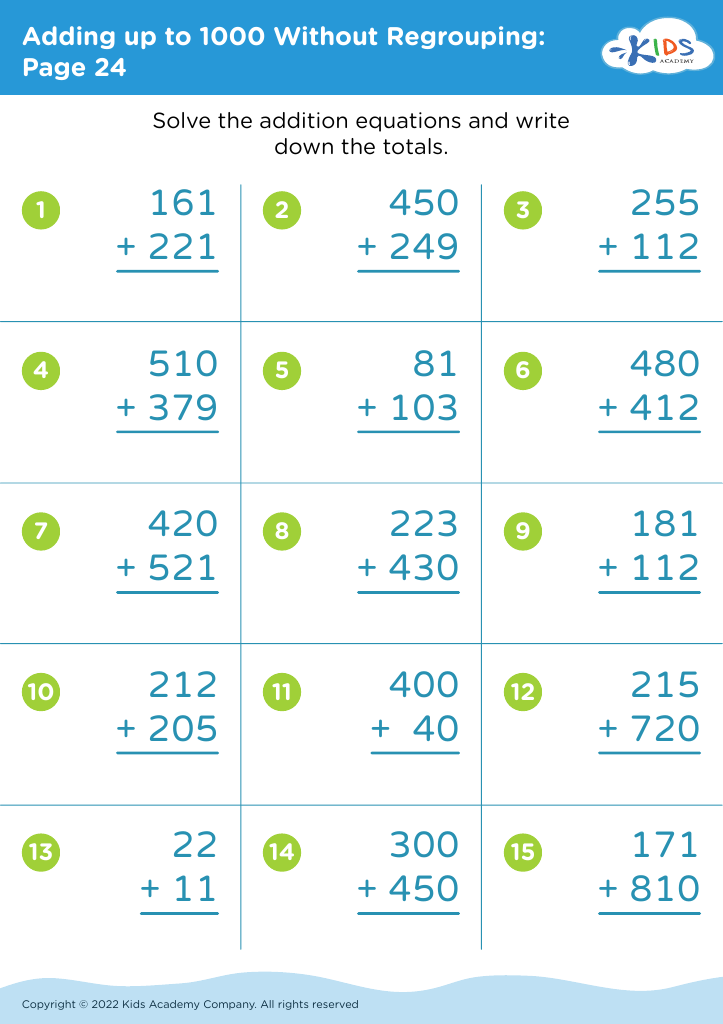Improving math skills Adding up to 1000 Without Regrouping Worksheets for Ages 6-9
3 filtered results
-
From - To
Boost your child's math skills with our "Adding Up to 1000 Without Regrouping" worksheets, designed specifically for ages 6-9. These engaging resources help young learners practice addition in a fun and stress-free manner, reinforcing their understanding of numbers up to 1000. By focusing on straightforward addition problems that avoid regrouping, children can build confidence and improve their computational fluency. The worksheets are structured to cater to various learning styles, ensuring each student can grasp fundamental math concepts effectively. Perfect for classroom use or at-home learning, our materials make math enjoyable, encouraging children to explore numbers with enthusiasm and ease!
Improving math skills, particularly the ability to add up to 1000 without regrouping, is crucial for children aged 6-9. Mastery of this skill is foundational, as it enhances their computational fluency and builds confidence in their mathematical abilities. This age group is typically in a transitional phase where they shift from concrete understanding of numbers to more abstract reasoning. Proficiency in addition without regrouping ensures that students develop a solid grasp of number sense, which will support more advanced mathematical concepts as they progress in their education.
Moreover, strong addition skills pave the way for success in daily life and further academic pursuits. Many real-world scenarios require quick mental calculations—be it budgeting, shopping, or planning activities—making these skills essential for practical applications. Additionally, as children engage in games and educational activities involving addition, they enhance critical thinking and problem-solving skills.
Teachers and parents play a vital role in fostering these abilities through engaging and meaningful practice. Seeking ways to make learning fun, such as using manipulatives or interactive games, cultivates a positive attitude towards math, ensuring that children not only learn but enjoy the process. Encouraging this skill from an early age sets the foundation for lifelong learning and success in mathematics.














